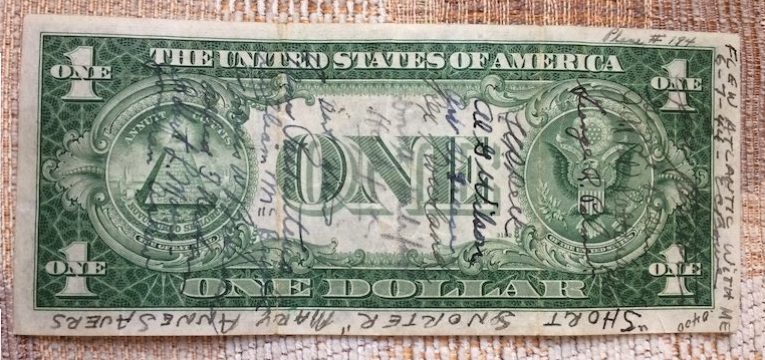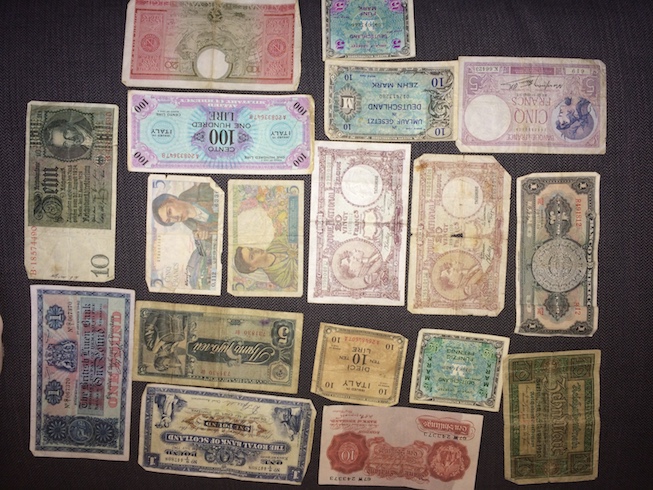This is an important day. We must remember, and for those of us who were not there:
we must learn.
I will tell two stories here. Firstly, I am reminded of leaving America to come live in England. Even though I thought we spoke the same language, there was so much I didn’t understand. Culture, history, different values, meanings, and traditions. It was a powerful lesson for me to learn that there was a universe of understanding that I did not yet have. I’ll tell the story…
When I moved down to the South Coast of England after my master’s degree in London, I used to enjoy going to my fiancé’s grandfather’s house a couple of villages away to visit with him and talk over a glass of sherry – it broke up the day’s cello practice, and he was a truly lovely man. A gentleman wise beyond words. We would sit at his old pine table in the smallish and typical English kitchen, with teapots, mugs, a little black stove, and a small pantry cupboard, and he would pour sherry and open the tin of cheddar biscuits, have plate of peanuts or ‘Bombay mix’ as it said on the packet (nuts and pretzels and little crackers – trail mix in America). The day that I remember so well he was telling me about having to leave for the war- and the sirens were going and he was in the Piccadilly office (he was head of the Children’s BBC for a while) and he described going down the stairs and the secretary rushing down the corridor and having to leave everything and shutting the door while the telephone was still ringing, but they had to go- left it all just like that. It is impossible to comprehend, but I listened, very intently and nodded along as he spoke – adding ‘uh-huh’ and ‘yeah’. At some point there was a flicker of fire in his eyes, not quite anger, but intense frustration and he slammed his hand on the table and said,
‘Will you stop?! Why are you doing that – nodding and carrying on like you were there. You have no way of knowing what I am going to say or of understanding what it was like. Sit and listen, but don’t pretend to know.’
This was in May of 1997. Time stopped for me in that moment. I remember the floral dress I was wearing (good for playing cello), I remember the feeling of heat rise up from within, breaking out in a sweat and in red blotchy patches on my face and neck, wishing wishing that I hadn’t done that, that somehow I could have realised a little bit the gravity of the memory he was sharing.
and I remember the silence that followed while he looked into me.
I then said – ‘I’m sorry, I didn’t mean to do that.’ and I tried very hard not to cry.
The tension broke with a sip or sherry. My friend’s grandfather went on to say-
‘you need to learn to listen.’
‘There is more to a conversation. Listen to what is being said and then you might have a comment.’
I found it very difficult to sit still and almost stifling not to fill the space between his words with ‘noise’ (which I think is an American thing to do). Over many sherry time visits, and garden visits, and lunches I learned to appreciate listening and really had valuable conversation lessons. I was made aware that in general I didn’t know how to actually hold a conversation that involved listening and not automated responses.
So, his overall advice involved eliminating the pre-emptive nodding or gestures and the instant agreement and alignment with stories. From then on it was more interactive- I would ask questions and for a while he would reaffirm that it was ok to ask, and he would explain… I got so many stories- and began to gain a sense of history that I had never known in America – not because I hadn’t learned, but because I wasn’t there; I hadn’t lived his story.
I thank God for that.
Fast-forward to today. Living here, there are Spitfires that still fly in our skies, and when the sound of that engine comes, we all go outside and pay our respects. I cannot comprehend. I was not there. It is my duty to tell my children so they do not grow up blithely assuming entitlement. We enter this world with nothing, leave with nothing, and in the middle I sincerely hope we can share love and compassion with one another.
There is more to the story. That was 19 years ago. Today in my class we stopped and remembered. I recounted the speech that our Vice Chancellor has said every year to the University of Chichester graduates – and I told them that as he is retiring and they would not hear his speech, I would relay it.
He tells the graduates that he would like to give them a piece of the university to take with them. A room. E124. It is an ordinary room now – in fact the windows need repairing – it is not the most beautiful room, but is a teaching space. If you had been there on the evening of June 5th 1944 it would have looked very different – a command centre for aircraft movement. And he goes on to describe the glass topped table with maps on it, and discs to represent groups of aircraft – flown by pilots of a similar age to many of our students and graduates. There were women taking instructions and assisting, and some 8 or 10 years ago one of those women came back to visit the university. Our VC Clive asked her what she saw that night and she said that on other days she had passed her friend as one finished a shift and the other started working, but that day was different. Their eyes met as she crossed the threshold of the door and her friend said – it’s begun. What? not another rehearsal?? No. It’s happening.
There is history within the walls. Where the student accommodation is, just next to my office building, 10 years ago there were still the low arched brick bunkers where the wounded from France were taken. My great-uncle (yes, my American relative) was one of the pilots flying those wounded. I don’t know if he took people to my university campus, but he may well have. Sometimes the world is so small. When I last saw my mother, she gave me a zip-lock bag of old money.
It was from my great-uncle – some of it has writing on it. There is a dollar signed by all who were in his squadron and something from the day after the Armistice was declared.
Today we remember and live for peace.
featured image CC BY by Mark Shirley




Thank you for this. I love the story about your husband’s grandfather, his impatience and his sense that you couldn’t understand, no one could understand. I would love to share this piece I wrote a long time ago when a remarkable coincidence occurred in my life and I heard part (and later all, but that’s another story) of my Dad’s day on Normandy, a story he never shared with any of us in the family. http://cowbird.com/story/3474/Fred/
I really appreciated, too, the currency. Such a meaningful and interesting way to evidence connection.
Thanks for this. I feel that many of us in your Homeland — across the Puddle, as it were — are walking around numb from the week’s events, our Brexit, and have forgotten all those brave men and women of so many years ago and instead are focusing on our own worries and confusion.
It is, now more important than ever to look at history, to look also all around us, to try to understand our neighbors, to understand those who are different than us, to welcome them with the kindness of listening. It is important to understand the forces that led to so many gentle souls losing their lives in a war that fades like a November breeze. Understanding and remembering helps steel our souls to standing up to those same forces that have returned.
My best to you, as always, and thanks for making me think. And feel. I hope you enjoy the story of my father.
geoff